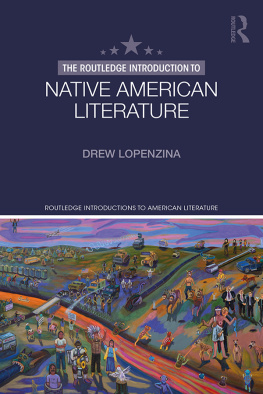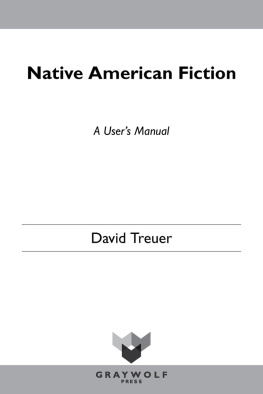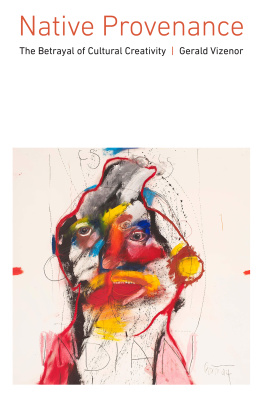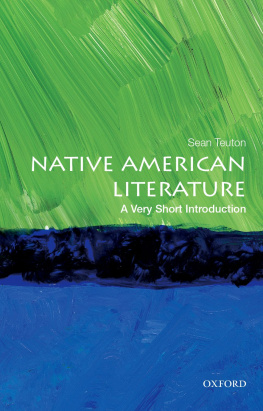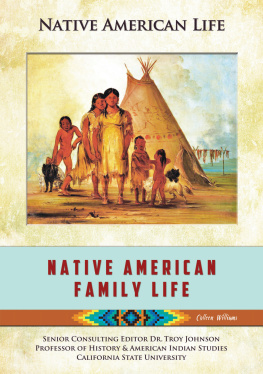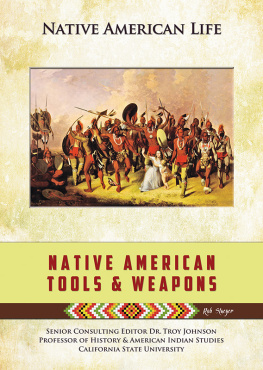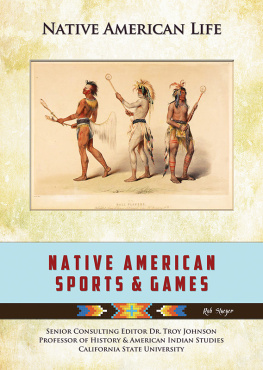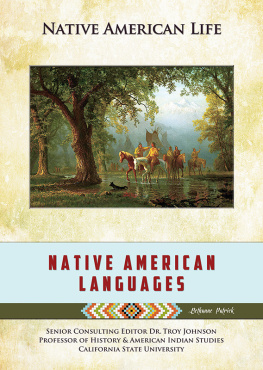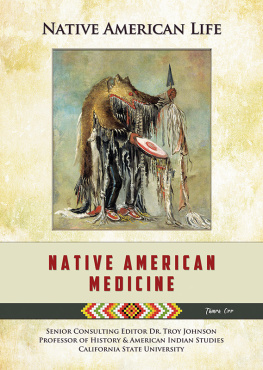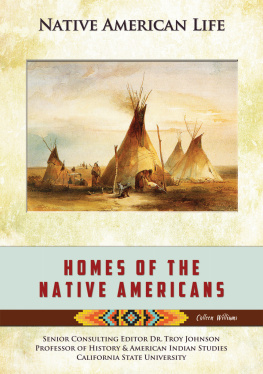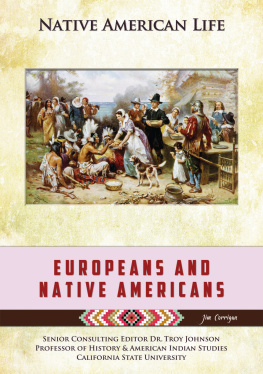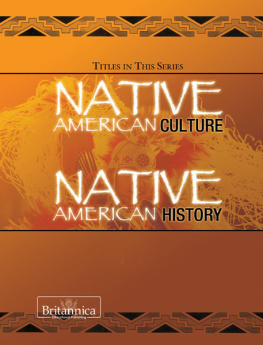The Routledge Introduction to Native American Literature
This Introduction makes available for student, instructor, and aficionado a refined set of tools for decolonizing our approaches prior to entering the unfamiliar landscape of Native American literatures. This book will introduce indigenous perspectives and traditions as articulated by indigenous authors whose voices have been a vital, if often overlooked, component of the American dialogue for more than 400 years. Paramount to this consideration of Native-centered reading is the understanding that literature was not something bestowed upon Native peoples by the settler culture, either through benevolent interventions or violent programs of forced assimilation. Native literature precedes colonization, and Native stories and traditions have their roots in both the precolonized and the decolonizing worlds. As this far-reaching survey of Native literary contributions will demonstrate, almost without fail, when indigenous writers elected to enter into the world of western letters, they did so with the intention of maintaining indigenous culture and community. Writing was and always remains a strategy for survival.
Drew Lopenzina is Associate Professor at Old Dominion University and teaches in the intersections of Early American and Native American literatures. His 2017 book, Through an Indians Looking Glass (University of Massachusetts Press), is a cultural biography of nineteenth-century Pequot activist and minister William Apess. Lopenzina is also the author of Red Ink: Native Americans Picking up the Pen in the Colonial Period (SUNY Press 2012). The journal American Studies has called Red Ink an impressively thorough and often compelling study that extends the bounds and enriches our understanding of Native American Literary history. Lopenzinas essays appear in the journals Early American Literature, Native American and Indigenous Studies, American Literature, American Quarterly, Studies in American Indian Literature, American Indian Quarterly, and others.
Offering a historical context from which students can understand the participation of Native American writers in literacy practices from the start, Lopienza challenges readers to rethink what he calls the rhetorical firewall between modern perceptions of oral and literate cultures, that has led to an underappreciation of the complex legacy of the Native American literary canon. A valuable tool for students and teachers alike.
Vanessa Holford Diana, Westfield State University
ROUTLEDGE INTRODUCTIONS TO AMERICAN LITERATURE
Series Editors: D. Quentin Miller and Wendy Martin
Routledge Introductions to American Literature provide critical introductions to the most important topics in American Literature, outlining the key literary, historical, cultural, and intellectual contexts. Providing students with an analysis of the most up-to-date trends and debates in the area, they also highlight exciting new directions within the field and open the way for further study.
Volumes examine the ways in which both canonical and lesser known writers from diverse class and cultural backgrounds have shaped American literary traditions, addressing key contemporary and theoretical debates, and giving attentionto a range of voices and experiences as a vital part of American life. These comprehensive volumes offer readable, cohesive narratives of the development of American Literature and provide ideal introductions for students.
Available in this series:
The Routledge Introduction to African American Literature
D. Quentin Miller
The Routledge Introduction to American Modernism
Linda Wagner-Martin
The Routledge Introduction to American Women Writers
Wendy Martin, Sharone Williams
The Routledge Introduction to American War Literature
Jennifer Haytock
The Routledge Introduction to American Postmodernism
Linda Wagner-Martin
The Routledge Introduction to Native American Literature
Drew Lopenzina
First published 2020
by Routledge
52 Vanderbilt Avenue, New York, NY 10017
and by Routledge
2 Park Square, Milton Park, Abingdon, Oxon OX14 4RN
Routledge is an imprint of the Taylor & Francis Group, an informa business
2020 Taylor & Francis
The right of Drew Lopenzina to be identified as author of this work has been asserted by him in accordance with sections 77 and 78 of the Copyright, Designs and Patents Act 1988.
All rights reserved. No part of this book may be reprinted or reproduced or utilised in any form or by any electronic, mechanical, or other means, now known or hereafter invented, including photocopying and recording, or in any information storage or retrieval system, without permission in writing from the publishers.
Trademark notice: Product or corporate names may be trademarks or registered trademarks, and are used only for identification and explanation without intent to infringe.
Library of Congress Cataloging-in-Publication Data
A catalog record for this title has been requested
ISBN: 978-1-138-29125-6 (hbk)
ISBN: 978-1-138-63024-6 (pbk)
ISBN: 978-1-315-20972-2 (ebk)
While writing this book I attempted to draw from my years of experience teaching classes in Native American Literature, but I was reminded every step of the way of the debt owed my own teachers, both in and out of the classroom, who helped shape this journey. I have endless appreciation for Siobhan Senier, John Ernest, Brigitte Bailey, and all my other professors at the University of New Hampshire for their ethical guidance, wisdom, and expertise. They demonstrated that being a teacher and a mentor involves more than just time spent in the classroom, and my career would have been much more improbable without the time they graciously extended beyond the classroom to help me develop ideas and enter upon my own path of scholarship. It is a practice, a way of being, that I have always tried to emulate and extend to my own students when possible.
I am also indebted to the great network of indigenous friends and scholars who have guided me along the way. They include, but are certainly not limited to, Lisa Brooks, Margaret Bruchac, Melissa Tantaquidgeon Zobel, Rae Gould, Jace and Laura Weaver, Joyce Rain Anderson, Ron Welburn, Cheryl Savageau, Rhonda Anderson, Donna Moody, Karenne Wood, and others. They have proven to be a community of sharp-witted, poetic, activist scholars and thinkers whose example, commitment, generosity, and passion have fortified me at various stages of writing this book.
It would also be impossible to map out the endless ways that my students, over the years, either creatively pushed back, added something new, or afforded me opportunity to look at certain materials in a different light, transforming the entire constellation of connections and meanings around which a semester coheres. Although I could not name them all here, I am endlessly grateful to those students who, through their willingness to learn and engage at a high level, made the study of indigenous literatures a truly collaborative venture. Some of them, I am both happy and proud to say, are teachers now themselves, and their work continues to inspire and energize me.
And, as always, I am grateful to my family for all their patience and love.
I may as well also acknowledge that Native American Literature is difficult to teach. To do it properly requires so much more than simple good will or a love of diverse literatures. There is no real comfort zone here. Regardless of who you are, it will be incumbent upon you to teach materials pertaining to an identity or culture other than your own, and there is a responsibility to get it rightto not contribute to the endless layers of misrepresentation and falsehood that have resulted in so much cultural, physical, and spiritual struggle for Americas indigenous peoples. There is a great deal to celebrate in Native literature, both past and present, but there is also a great deal of painful terrain to be charted that must not be swept under the rug, and it can test the capacities of teachers and students. But it can also lift us all up and bring out what is best in us. Particularly in trying times, it is sometimes all we can do to lean in the direction of hope and, with patient determination, tell the story in a good way, in a manner that, in accordance with Haudenosaunee tradition, imagines the richest possible future for those yet seven generations separated from ourselves.

